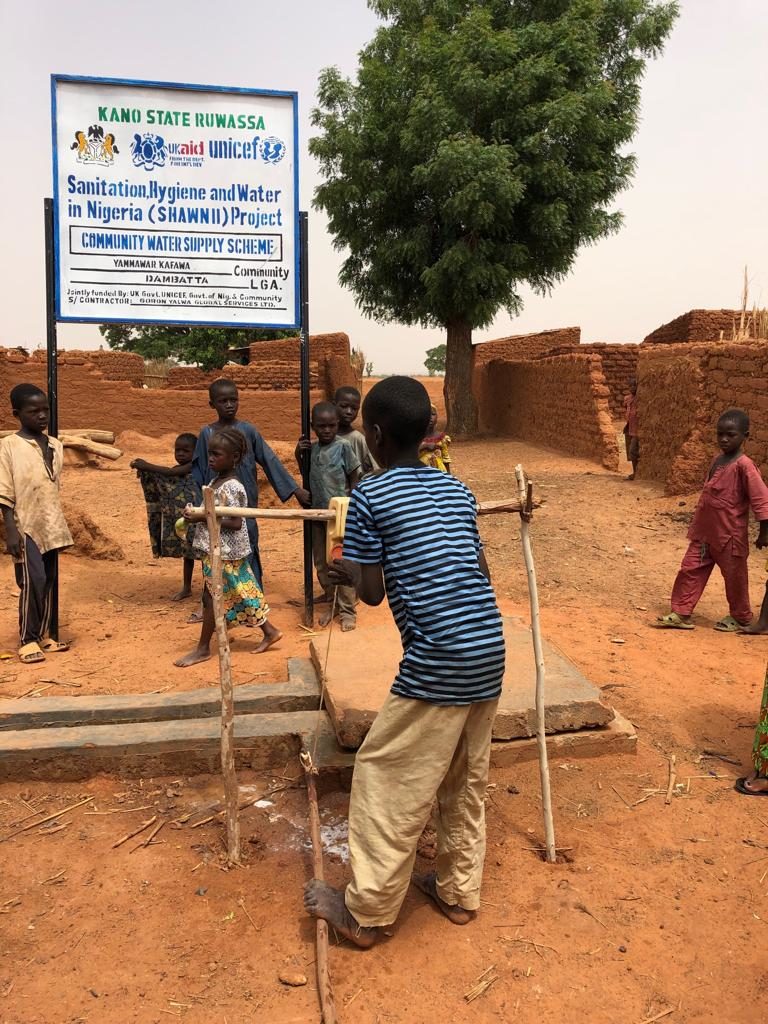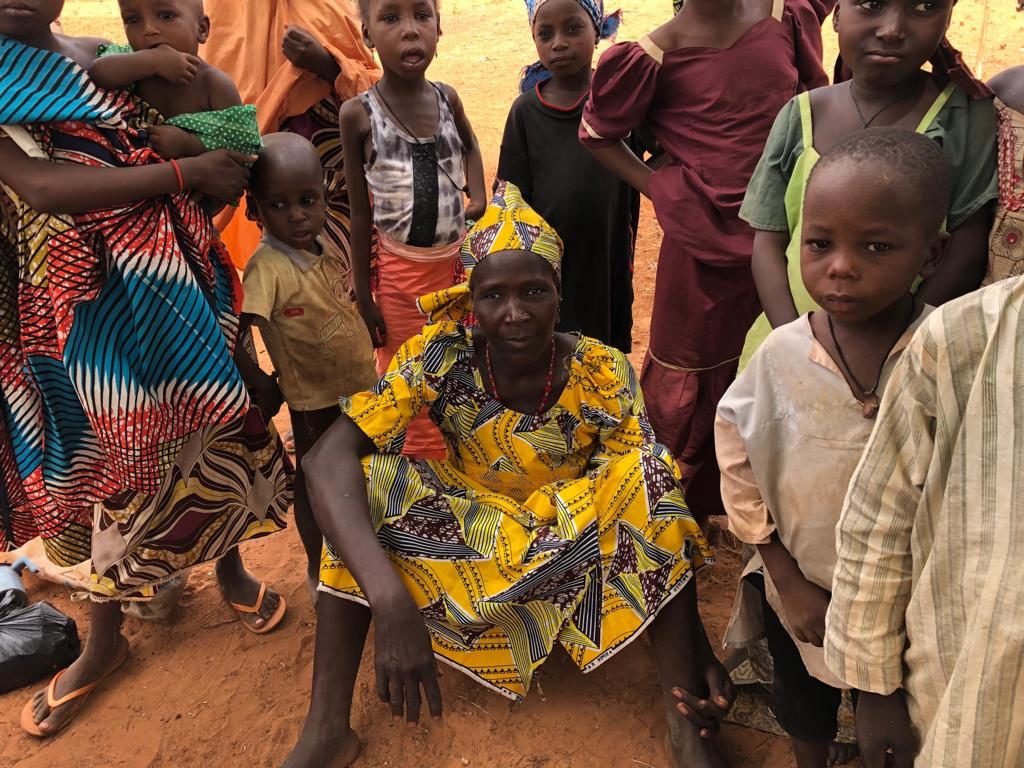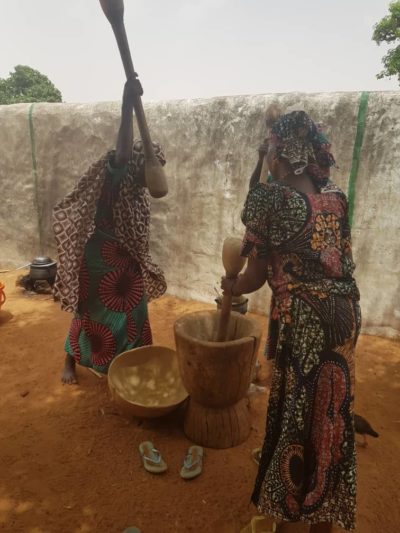By Ndidichukwu Odoh

A very hygiene conscious Fulani Community-Yammawar Kafawa people in Dambatta Local Government of Kano State-considers open defecation-shitting in the open or bush- a crime bad enough to attract fine.
Defaulters are made to pay N2,000- N3,000 as penalty. The overall aim of the people in this community is to enjoy a sane and hygienic environment, they want to live more, be free from diseases and have healthy children who are able to survive childhood diseases like cholera, diarrhea and Pneumonia caused by open defecation.
In Yammawar Kafawa, Hajia Hauwa is a revered women leader, she leads the women committee to the houses of families found guilty of open defecation to collect fines. Money generated from the fines are shared amongst other women in the community weekly.

“No one wants to pay N2,000 when it’s a child or N3,000 for adults when caught shitting on the ground or bush around the community, everybody now understands and people now avoid it. The solution is that the fathers built toilets for their families” said Hajia Hauwa, the women leader of Yammawar Kafawa.
The keen interest and sanitation consciousness of the people is as a result of months of sensitization and awareness by United Nations Children’s Fund (UNICEF), European Union (EU) Funded Project “Clean Nigeria: Use the toilet” about the spate of open defecation which results to increased childhood diseases and deaths in rural communities.
“ we were told that our children fall sick and die because we do not have toilets, we defecate in the bush and around the compound when it rains it comes back to us, our children fall sick from it, that is why we decided to stop open defecation. It is bad, and not hygienic” said Hauwa.
Halima Usman and Fadela Usman are married to Mallam Nasir Usman, the Husband and father of the Family of 10, had paid series of fine, following his decline to construct a toilet for his family. He was encouraged and assured of the safety and benefit for his family.

“Before I did not have toilet, the community has fined me severally, I have lost money. My children were always falling sick.”
In Febraury, Mallam Nasir Usman, Constructed a toilet for his family and has designated a plot of land to construct another one when the new one gets full.
“going to toilet is natural, but before when it is time for toilet I feel bad because I have to walk to the bush, I get worried about anyone attacking me or someone spying on my body” said Halima.
For Fadela, “It is better we have toilets in our compound, we no longer go to the bush, and our children are healthier”
“I can now see the benefit, none of my children fall sick again, we have toilet, water and soap to wash hand after using the toilet, my compound no longer smell” said Usman
“I no longer pay fines, my wives no longer go to the bush when nature calls” he said.
The fines and penalty approach adopted by the community themselves helped them become Open Defecation free-everybody use toilet-shitting in the open is now far-fetched for Yammawar Kafawa people.
According to the findings from the 2018 Water Sanitation and Hygiene, National Outcome Routine Mapping (WASH NORM) survey, Nigeria ranks second among countries practicing open defecation globally and 47 million people in the country practice open defecation and 33 million more use unimproved toilets.
“What UNICEF is doing is sanitation and hygiene promotion and awareness creation in communities, we improve access to safe water and sanitation in schools and health care facilities, we bring wash to disadvantaged communities, we also support them to eliminate Open Defecation” said Bioye Ogunjobi, a WASH Specialist with the United Nations Children’s Fund (UNICEF),
UNICEF’s EU “Clean Nigeria: Use the toilet” supports sanitation demand creation through community approaches, through the project, 1.7 million Nigerians have gained access to improved water facilities and 2.2 million have access to improved toilets.
Like Yammawar Kafawa about 3,908 communities have been supported to become certified open defecation free through community approaches.
Despite the efforts, gaps remain, the 3,908 communities certified open defecation free covers only 11 Local Government areas out of 774 in Nigeria, making the country an unsafe place for Nigerian children to grow and almost impossible for the country to be among the countries to achieve Universal Coverage on Hygiene by 2025.
Behavioral change approaches have to be adopted to reach more Nigerian communities to learn from Yammawar Kafawa people soon enough.
























